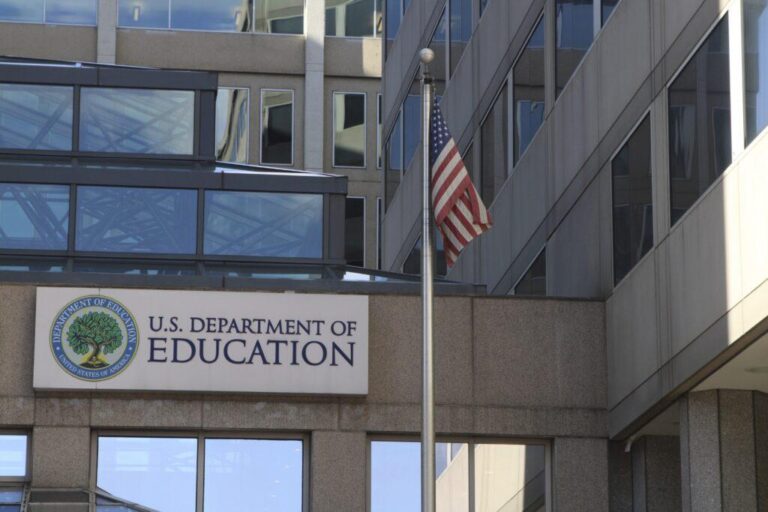In a recent development that clarifies widespread speculation, the U.S. Department of Education has confirmed that it will not be shutting down entirely. This announcement comes amid ongoing budget negotiations and political debates that have fueled concerns about the future of federal education programs. In this Daily Briefing, we examine the implications of the department’s operational status, the reaction from education stakeholders, and what this means for students and institutions nationwide.
Education Department Continues Core Operations Despite Partial Shutdown Concerns
Despite widespread concerns of a federal government shutdown, the Education Department has assured the public that its core operations remain fully functional. Critical services, including student loan processing, federal grant disbursements, and support for educational institutions, continue uninterrupted. Department leaders emphasize their commitment to maintaining essential functions to avoid disruptions for millions of Americans relying on educational resources and funding.
Key areas currently operational include:
- Student financial aid management, ensuring ongoing access to funds for eligible students
- Grant program administration to support schools, teachers, and research
- Data collection and reporting crucial for policy development and public transparency
The department has also prepared contingency plans which prioritize services directly affecting students and educational institutions. Below is a summary of operational status and priorities:
| Department Function | Status | Impact on Public |
|---|---|---|
| Student Aid Disbursement | Active | Funds remain accessible without delays |
| Federal Grant Processing | Active | Ongoing support for schools and educators |
| Policy Research & Analysis | Reduced | Delayed new studies, existing reports available |
Impact on Federal Student Aid and Key Education Programs Explained
Despite concerns about potential disruptions, the Department of Education continues to operate, ensuring that critical funding streams remain intact for millions of students. Federal student aid programs, including Pell Grants, Direct Loans, and Work-Study opportunities, are unaffected by partial government shutdown measures. This ongoing functionality safeguards students’ access to essential financial support, preventing interruptions that could jeopardize educational pursuits across the nation.
Key points on program stability include:
- Timely disbursement of funds to colleges and universities.
- Continued processing of applications through FAFSA.
- Ongoing management of loan servicing and repayment options.
- Support for education initiatives such as Title I grants and special education funding.
| Program | Status During Partial Closure | Impact on Students |
|---|---|---|
| Pell Grants | Fully Operational | Funds Disbursed on Schedule |
| Federal Work-Study | Uninterrupted | Jobs Remain Available |
| Loan Servicing | Active | Repayment Options Maintained |
| Title I Grants | Functioning | Schools Receive Funding |
Strategies for Schools and Districts to Navigate Funding Uncertainties
School administrators and district officials must proactively develop a flexible financial framework to withstand the unpredictability of federal funding. Prioritizing essential programs and creating tiered spending plans allows for swift adjustments without compromising core educational objectives. Leveraging partnerships with local businesses and nonprofits can provide supplementary resources and mitigate potential shortfalls. Additionally, transparency with stakeholders about budget constraints fosters community support and may unlock additional funding avenues.
Key strategies include:
- Implementing multi-year budget forecasting to anticipate funding fluctuations
- Expanding grant writing initiatives to access alternative funding sources
- Enhancing data-driven decision-making to optimize resource allocation
- Strengthening collaboration across districts to pool resources and share best practices
| Strategy | Potential Benefit | Implementation Timeline |
|---|---|---|
| Multi-year Budget Forecasting | Improved financial stability | 6-12 months |
| Grant Writing Expansion | Diversified revenue streams | 3-6 months |
| Data-driven Resource Allocation | Maximized program effectiveness | Ongoing |
| Inter-district Collaboration | Cost savings and innovation | 1-2 years |
Expert Recommendations for Staying Informed and Preparing for Administrative Changes
To effectively navigate upcoming shifts within the Education Department, experts emphasize maintaining a proactive approach to information gathering. Subscribing to official newsletters, such as the Department’s weekly updates, and following key education policy analysts on social media platforms allows stakeholders to receive timely and reliable news. Additionally, joining relevant forums and educational associations ensures access to a network of professionals sharing insights on administrative decisions as they unfold.
Key strategies to stay ahead include:
- Regularly reviewing government press releases and official statements
- Attending webinars and panel discussions hosted by education think tanks
- Utilizing RSS feeds from trusted news sources specializing in education policy
| Resource | Purpose | Frequency |
|---|---|---|
| Education Department Newsletter | Direct policy updates and announcements | Weekly |
| Policy Analyst Twitter Feeds | Real-time expert commentary | Daily |
| Education Forums | Peer support and knowledge exchange | Ongoing |
Preparation also hinges on cultivating adaptability within institutional and personal frameworks. Experts advise educational leaders and staff to audit current programs and administrative processes against anticipated regulatory changes. This foresight allows for the rapid adjustment of curricula and compliance strategies, minimizing disruption. Furthermore, fostering open communication channels within institutions encourages staff and students to voice concerns and suggestions, creating a more resilient environment under dynamic leadership conditions.
Wrapping Up
In summary, despite recent concerns and widespread speculation, the Education Department will continue its operations without a full closure. As the agency navigates ongoing challenges, officials affirm their commitment to maintaining essential services and supporting students and educators across the country. Stakeholders are encouraged to stay informed through official channels as developments unfold.




